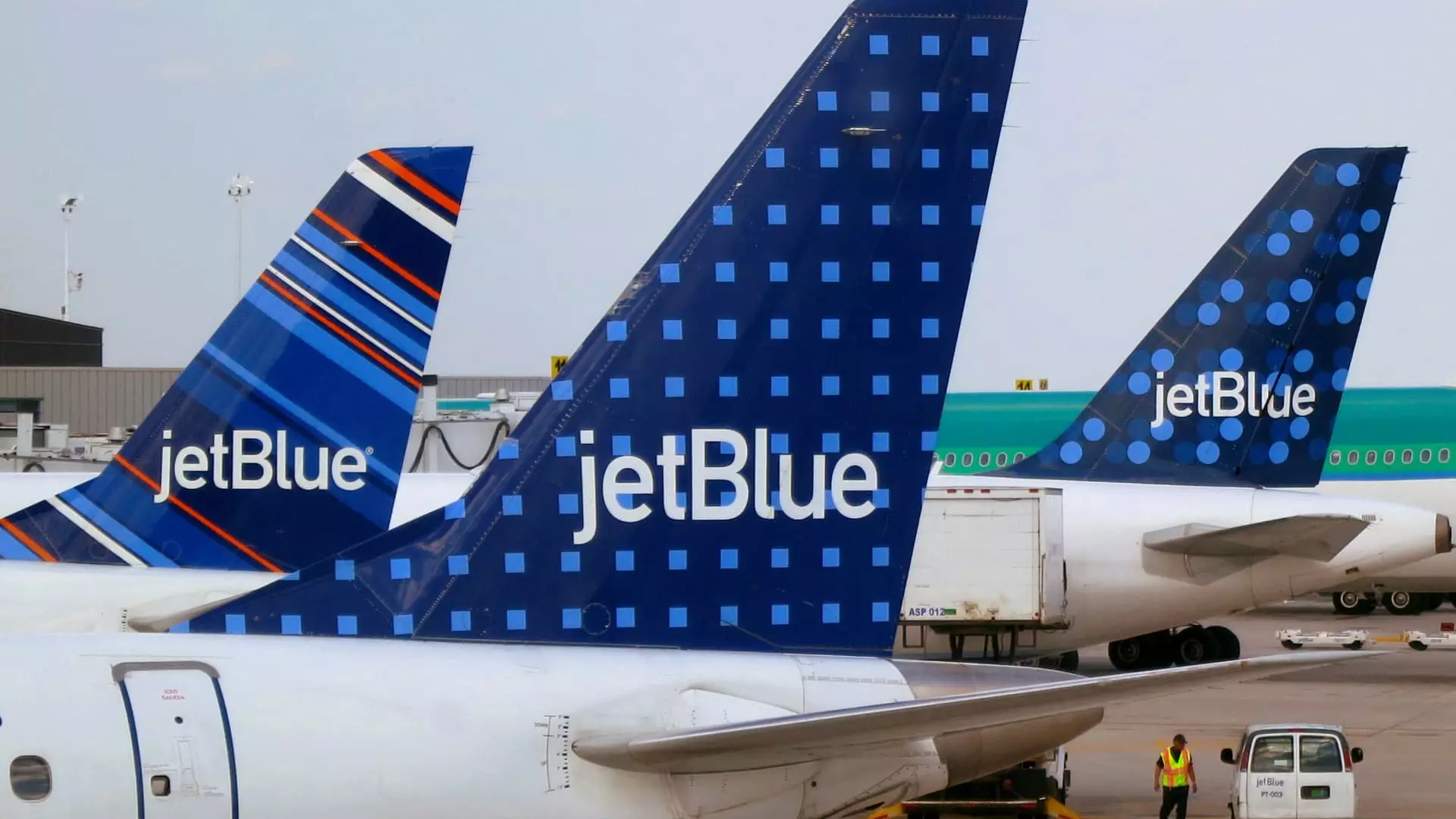Recently, the Department of Transportation (DOT) imposed a groundbreaking fine of $2 million on JetBlue Airways due to what it classified as “chronically delayed flights.” This penalty represents a significant turn of events in the aviation industry, marking the first time the DOT has sanctioned an airline for persistent delays. The fine stems from JetBlue’s operations on four specific routes, which together witnessed over 145 delays between June 2022 and November 2023. This incident not only emphasizes the need for airlines to adhere to realistic scheduling but also raises questions about the accountability structures in place within the airline industry.
The DOT has established criteria for determining what constitutes a “chronically delayed” flight. A flight is categorized as such if it operates at least ten times in a month and arrives more than 30 minutes late over half the time. Under this definition, JetBlue was found responsible for over 70% of the disruptions on the affected routes, which spanned from its New York hub at JFK to various locations, including Raleigh-Durham International Airport in North Carolina and cities throughout Florida and Connecticut. This situation highlights a broader issue within the airline industry, where operational challenges and scheduling discrepancies can lead to significant passenger dissatisfaction.
In response to the fine, JetBlue issued a statement suggesting that the DOT’s focus on the airline’s scheduling practices should not detract from the systemic issues impacting air traffic control as a whole. JetBlue’s management echoed sentiments voiced by other major airlines, advocating for increased investment in air traffic control infrastructure and staffing. This perspective raises important points about the collaboration between government and the airline industry in ensuring smooth operations. While it is essential for airlines to maintain accountability for their flights, systemic issues within air traffic control cannot be overlooked.
Transportation Secretary Pete Buttigieg remarked that the DOT’s actions serve as a pivotal warning to the entire airline industry, signaling that unrealistic flight schedules will not be tolerated. This stance may push other airlines to reevaluate their scheduling practices, particularly as the DOT has also announced ongoing investigations into additional airlines facing similar challenges with flight delays. The resultant shift could lead to greater accountability across the industry, as airlines may be more hesitant to schedule flights that they cannot consistently operate on time.
In light of the recent developments, it is noteworthy that JetBlue’s on-time arrival rates have shown some improvement. From January through September 2024, the airline managed to rank ninth among ten U.S. carriers, with 71.3% of its flights arriving on time. This represents an uptick from the previous year’s 64.9%. However, being at the bottom of the rankings raises concerns about the operational efficiency of JetBlue, an airline often praised for its customer service and amenities. The discrepancy between perceived and actual performance necessitates a reassessment of the airline’s operational strategies.
Looking forward, the implications of this fine could urge airlines to adopt more conservative scheduling practices, with an emphasis on reliability over sheer volume of flights. This could ultimately lead to changes in consumer expectations and air travel experiences. As airlines begin to prioritize operational dependability, this may foster a culture of transparency, where airlines are held responsible not merely for their profitability but also for the consistent satisfaction of their customers.
The recent actions taken by the DOT against JetBlue Airways signify a pivotal moment in the aviation industry. With the dual emphasis on accountability for airlines and the necessity for governmental support in air traffic control modernization, the future landscape of air travel may be markedly different. As JetBlue and potentially other airlines navigate this new regulatory framework, the focus on operational reliability and customer experience will likely shift, leading to an evolution in the airline industry’s approach to scheduling, accountability, and customer service. Ultimately, this incident may serve as a catalyst for a new chapter in aviation, one where air travelers can feel assured that their schedules will be respected and adhered to.

